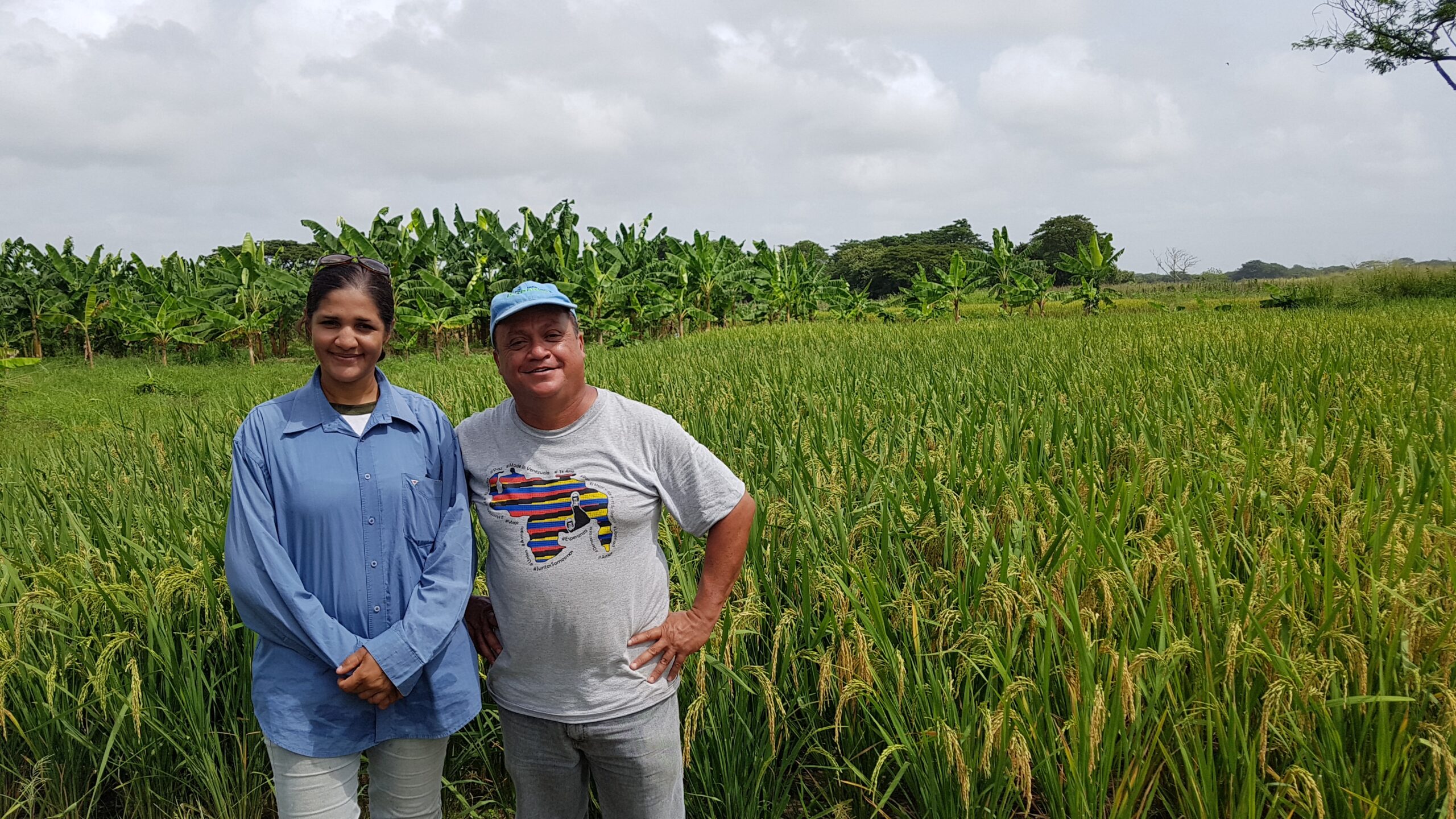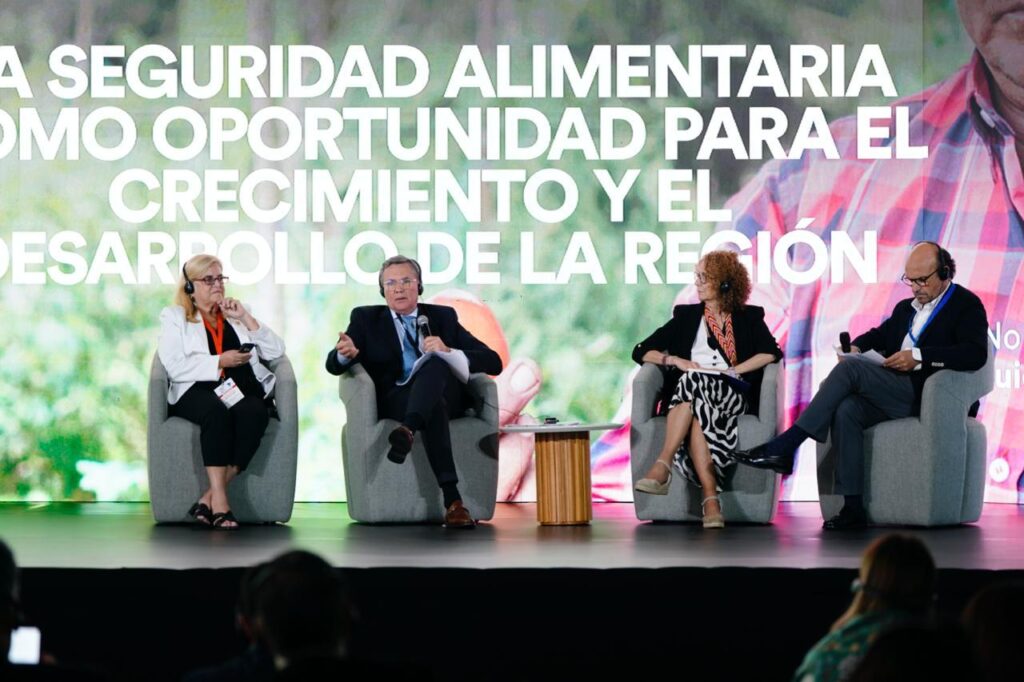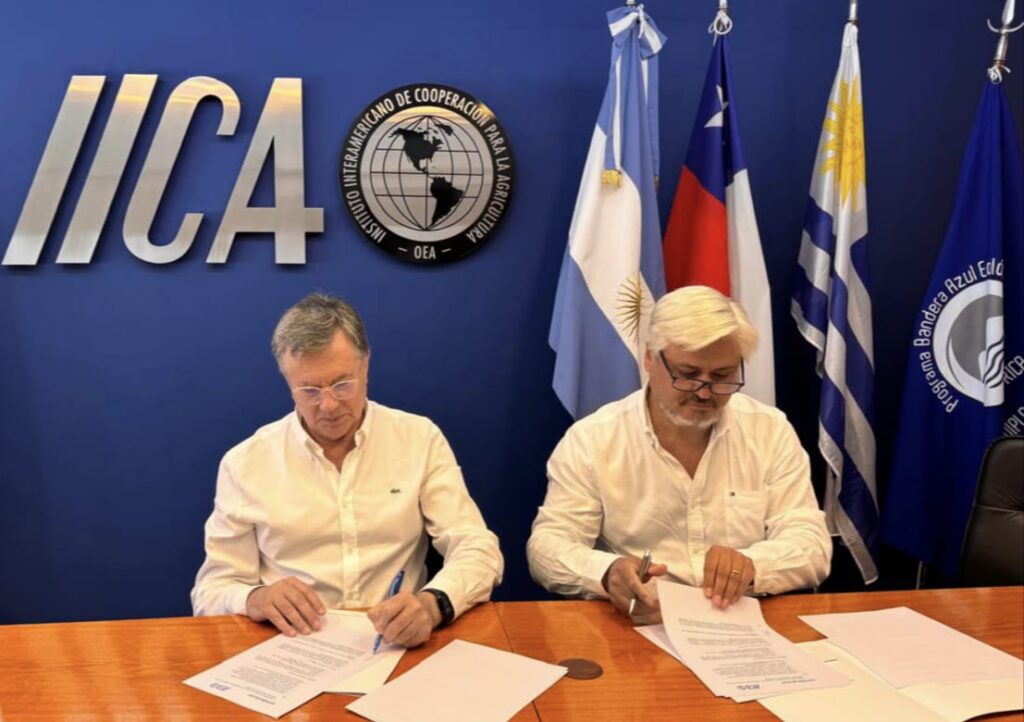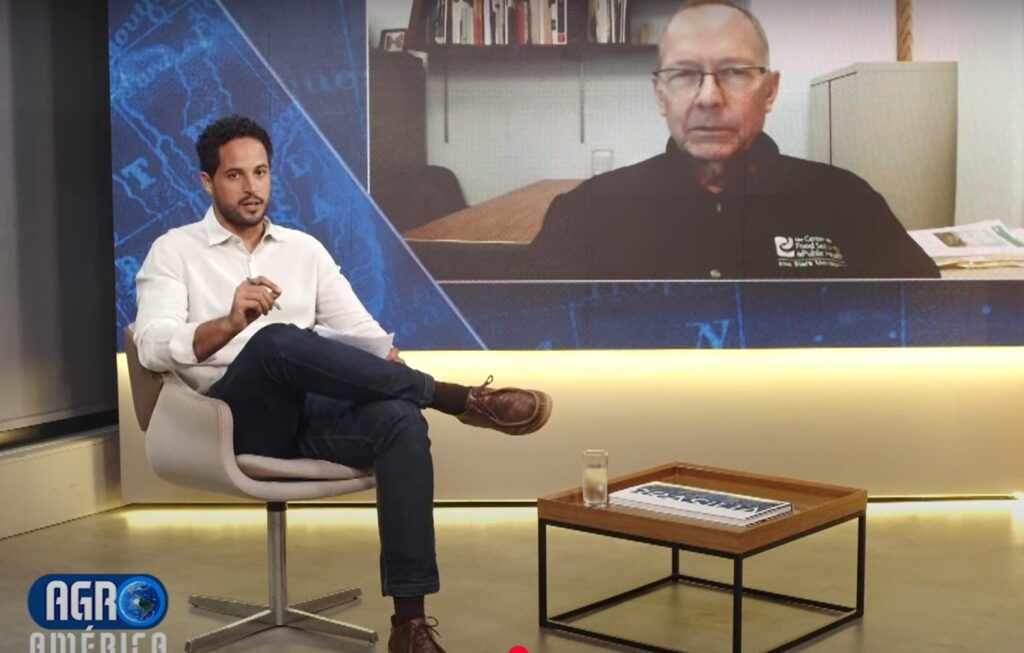El sistema SRI le ha permitido a Miguel Agüero, en Guárico, Venezuela, obtener mejores resultados en el cultivo usando menos recursos.

San José, 6 de agosto de 2020 (IICA). – En las extensas llanuras del estado venezolano de Guárico, un productor de arroz ha apostado con éxito por un innovador sistema que le ha permitido más resiliencia y sostenibilidad en el cultivo. La mejor de las noticias es que lo ha logrado utilizando menos recursos.
Se trata de Miguel Agüero, quien en el año 2017 se convirtió en pionero de la implementación en Venezuela del Sistema Intensivo del Cultivo de Arroz (SRI, por sus siglas en inglés), al dedicarle una parcela de media hectárea en su finca, la N° 234 del Sistema de Riego Río Guárico (SRRG), en el pueblo de Calabozo.
El SRI es una metodología agroecológica y climáticamente inteligente originada en la década de 1980 en Madagascar, que permite aumentar la productividad del cultivo de arroz y reducir la cantidad de insumos como el agua, las semillas y los fertilizantes mediante cambios en el manejo de las plantas, el suelo, el agua y los nutrientes.
Actualmente, Miguel dedica casi tres hectáreas al SRI y ha logrado una semilla de arroz de calidad, por lo que fundó la empresa familiar Semillas Banpedro C.A. para comercializarla.
La idea de crear la empresa surgió a raíz de la alta calidad de las semillas producidas.
“Mis vecinos, la gente interesada en calidad de semilla, ve cómo se cuida, cuál es la pureza de los materiales. La parcela ha sido para ellos una ventana al SRI”, contó Agüero.
Con asistencia técnica del Instituto Interamericano de Cooperación para la Agricultura (IICA), el SRI también se ha implementado con resultados alentadores en Chile, Colombia, Costa Rica, Panamá y República Dominicana.
El sistema consta de cuatro principios básicos: promover el establecimiento temprano y rápido de plantas saludables, reducir la competencia entre plantas, mantener los suelos saludables, aireados y enriquecidos con materia orgánica, y una mejor gestión del agua al alternar suelos secos y mojados.
“Ponemos en práctica casi todos esos principios; riegos intermitentes, incorporación de la materia orgánica, el pase desyerbado para favorecer la dirección del suelo y la contribución con el mejoramiento de la biota del suelo”, señaló Betsaida Soublette, investigadora que colaboró con el IICA en la implementación del SRI en Venezuela y brinda asesoría a Miguel Agüero.
Los retos
A causa de la difícil situación económica de Venezuela, uno de los retos para la implementación de SRI ha sido la poca disponibilidad y el costo de la mano de obra. Agüero, con apoyo de Soublette, han tenido que hacer algunos ajustes y siguen trabajando para mejorar el impacto del sistema.
“No ha sido fácil, más debido a la situación en que está el país”, comentó Agüero. “La mano de obra es lo más costoso, ya tenemos cuadrillas, estamos tratando de adquirir trasplantadoras y máquinas pequeñas para desgranar pero no hemos podido tener acceso aún, pese a que no son caras”, agregó.
En el proceso de siembra se establece una distancia específica entre plantas, pero a falta de la maquinaria específica, Agüero y Soublette idearon una creativa solución: normalmente los hilos de siembra con la sembradora distancian las hileras en 17 cm, entonces le taparon un hilo a la sembradora y lograron una distancia de 34 cm.
Otros productores de la zona, que poseen vastas extensiones de tierra, también han puesto en práctica el método, ajustándolo según sus necesidades, lo que les permite usar menor cantidad de semillas y por tanto de plantas por metro cuadrado.
“Junto a nuestros socios, incluyendo varios institutos nacionales de investigación agropecuaria, organizaciones de productores y la Universidad de Cornell, hemos demostrado que SRI sí funciona en las Américas y ahora tenemos que seguir superando algunas barreras para facilitar su implementación a una escala mayor”, detalló Kelly Witkowski, gerenta del Programa de Cambio Climático y Recursos Naturales del IICA.
Agregó que el SRI permite aumentar productividad, reducir significativamente el uso de agua y semilla y mejorar la resiliencia ante el cambio climático, al tiempo que el cultivo se hace más rentable para los productores.
Semillas Banpedro C.A., le empresa familiar de Miguel Agüero, tiene una cartera de clientes pequeña, pero el crecimiento no se ha detenido.
“Ha costado un mundo llevarla hacia adelante, pero en la medida que uno renazca en estos momentos de dificultad, sentará las bases más fuertes, y cuando vengan las uvas maduras ya uno estará en la cresta de la ola, entonces hay que soportar todas adversidades para lograr ser una empresa floreciente”, dijo Soublette.
Más información:
Gerencia de Comunicación Institucional
comunicacion.institucional@iica.int










